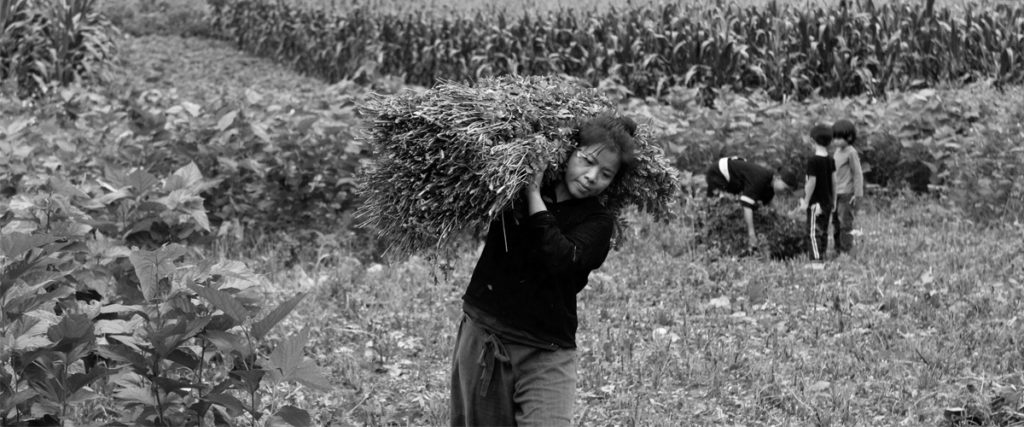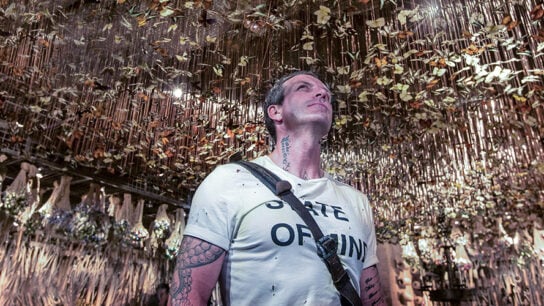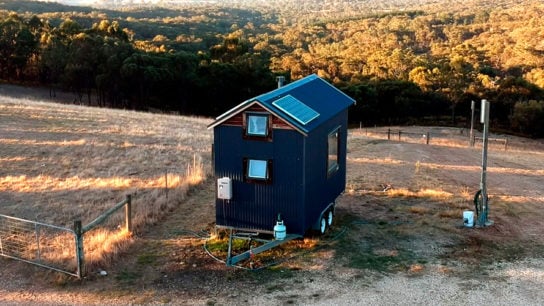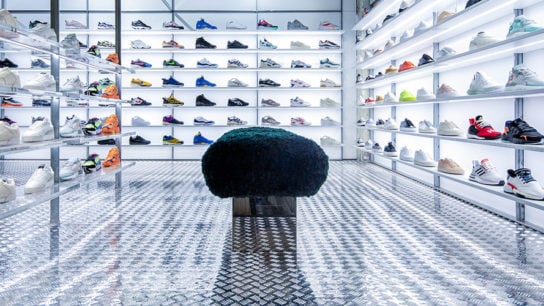Slow fashion brand Kilomet 109 is shining a light on Vietnam’s traditional artisans whilst trying to reshape the country’s reputation as more than the world’s latest fast fashion factory.
It all started with spotting a gap in the market. “The fashion scene in Vietnam is dominated, on the one hand, by mass production brands, and on the other, by luxury shops like Gucci and Chanel. There’s a big gap in-between and not many people engage in what we have locally in terms of textiles, techniques or simply just the ability to be creative,” says Thao Vu, founder of the slow fashion brand Kilomet 109. Often in the headlines, thanks to its sizeable – and fast-growing – clothing manufacturing industry, which as of 2018, produced over a billion items of clothing, making almost USD 5.2 billion in revenue, Vietnam’s fashion story has recently been one most associated with big name brands and large scale production. However, look a little closer, and you’ll find a country rich with traditional techniques and heritage. Read on to discover how Thao is bringing them back to the fore.
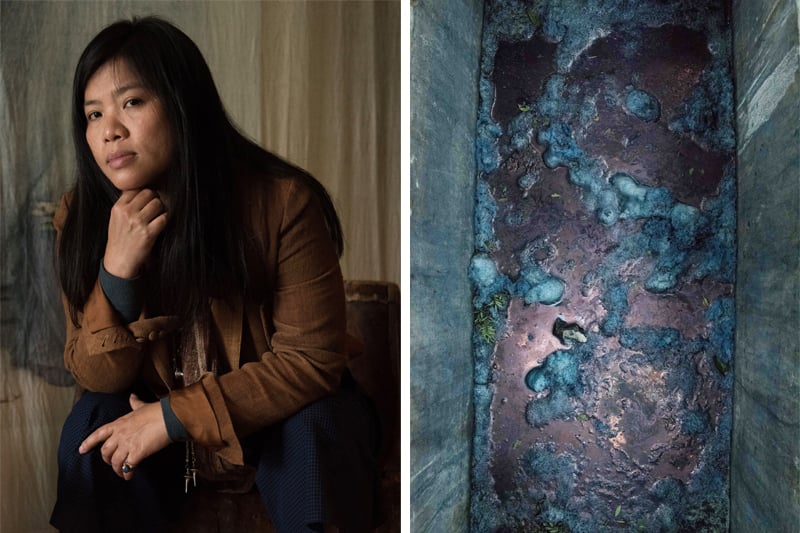
“From the beginning, I wanted to work with artisans and craft communities in villages around Hanoi,” explains Thao of the motivation behind starting her own fashion brand. After working at a magazine for the better part of a decade, she went back to fashion design school in 2006 before finally setting up Kilomet 109 in 2012. “It’s upsetting to me that Vietnam is known as a mass-producing country, especially when I see so much here that you can’t find elsewhere in the world. In Hanoi, we have so many people using different kinds of materials and techniques, each with a very long history behind them.”
Vietnam’s rich culture owes much to its vibrant community of 54 ethnic minority groups. It was to one of these that Thao reached out to get her idea off the ground. The Nung An community are best known for their traditional indigo dye, an unmistakably deep colour sourced from homegrown yam roots. “I met them at a festival and talked to a couple of ladies there for a while,” says Thao. They invited her to their home in Cao Bằng, a mountainous province in Northern Vietnam. “Each woman in the village has her own vat of dye either at the back or the front of her house. It’s a symbol of feminism, of being a woman, and the one who dresses the whole family. There, indigo dye is an icon of beauty and control amongst a lot of other things.”
You might also like Loom Loop: Falling For Fabrics
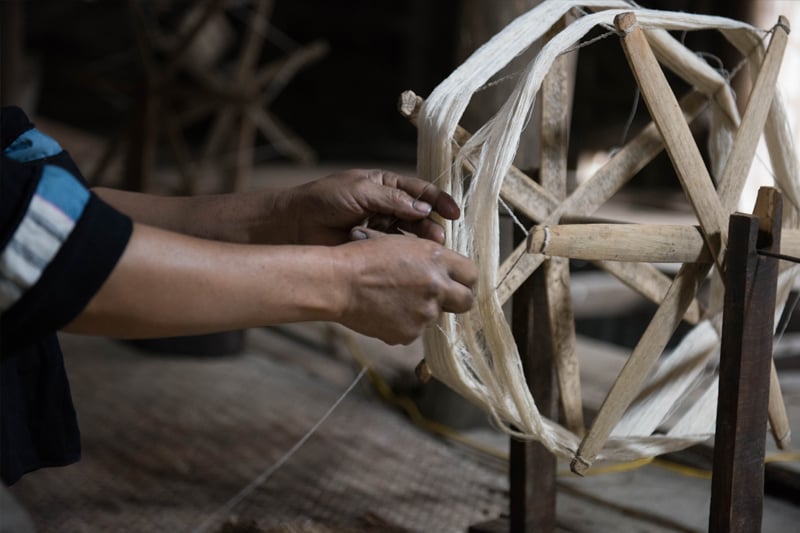
To begin with, things didn’t run smoothly. “I placed an order, and about a month, later it arrived. All the shades were wrong and we had a lot of other problems. I realised that I didn’t know these ladies. I didn’t know their culture nor their place in society. So, I went back to spend time with them, watch them work, and get to know each person. It was about creating a bond, understanding them as artisans, and them understanding me as a contemporary designer,” explains Thao. “I learned how to weave, how to spin the yarn, how to plant the indigo plants, water them and understand the soil. It took me four years to be able to launch the first collection made with 100% natural and homegrown materials. There were 12 women who worked with me, and we’re still in contact with each other,” Thao shares happily. They have a mutually beneficial relationship, too: “It’s a direct income. They’re like my employees – or family, more like,” she laughs.
The result of this relationship is something truly unique. Kilomet 109’s clothes represent the artisanal process from start to finish and have a deeper meaning because of it. “I want each piece to become something that connects with the consumer. To do that, you need to create something bigger,” Thao explains. “When I buy things now, I consider whether the design supports someone and is made in a local community with unique techniques. Something made to last,” she adds.
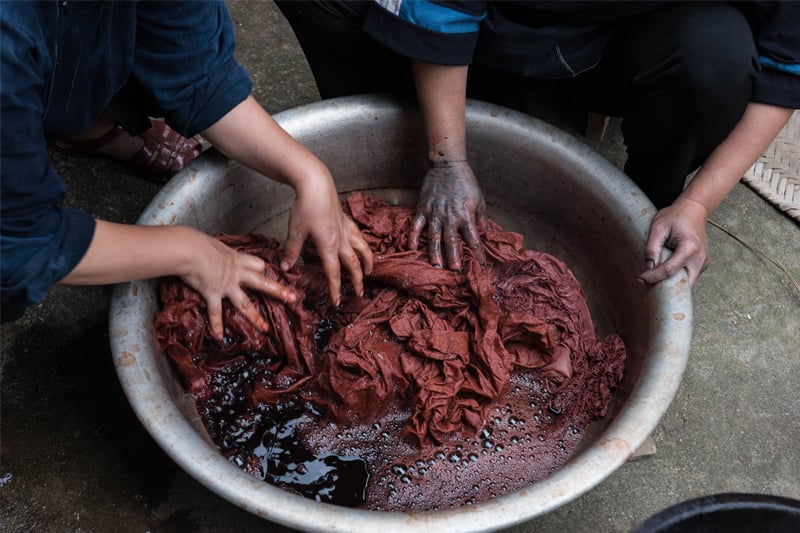
Thao firmly maintains that the flipside of this is at the crux of the fashion industry’s problems. “Nowadays, a lot of fashion brands, big and small, lose the connection with the place where their materials made. They have no clue where the fibre for their garments is from because every step of the process is passed through someone. It’s impossible to be transparent – that’s why people start lying. And that really bothered me,” she says. As Kilomet 109 grows with an online and flagship store in Hanoi alongside consignment deals with boutiques in Berlin and Portugal that are already under her belt, she hopes to change the industry and encourage brands to be more open about their supply chains. Next, she plans to work with ethnic minority groups in the south and centre of Vietnam, bringing their techniques to a new audience and encouraging a different kind of consumerism as she goes. “Mass-produced clothes have no soul. Most people completely forget about the artisans, the makers, the machinists and all of that. And that’s not fair.”
Photo credits: Benjamin Reich
